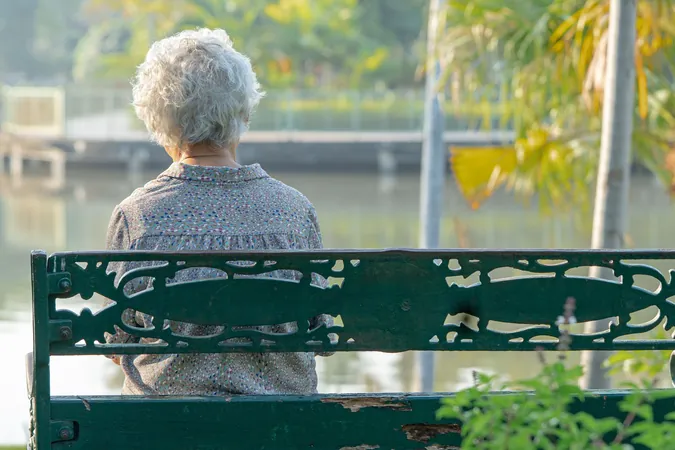
The Hidden Danger: Social Isolation and Its Deadly Impact on COPD Patients
2024-11-26
Author: John Tan
Recent Research Findings
Recent research published in JAMA Internal Medicine highlights a troubling connection between social isolation and increased mortality rates in patients suffering from Chronic Obstructive Pulmonary Disease (COPD). While many may perceive loneliness as merely an emotional concern, it’s becoming clear that the implications of social disconnection can be life-threatening, particularly for older adults battling chronic illness.
Understanding Social Isolation in COPD Patients
Social isolation refers to a lack of social interactions, which is alarmingly prevalent among COPD patients. Studies show that approximately 20% of individuals with COPD endure significant social isolation—a rate that is double when compared to the general elderly population. The limitations imposed by the disease, including debilitating breathlessness and reduced physical capabilities, contribute significantly to this phenomenon.
Research Methodology
The link between social isolation and mortality risk has often been overlooked, prompting researchers to delve deeper into this critical issue. Utilizing data from the Health and Retirement Survey—covering individuals aged 51 and older from 2006 to 2022—experts analyzed the lives of 1,241 COPD patients. They assessed factors indicative of social isolation, such as marital status, community involvement, living arrangements, and connectivity with family and friends. Participants who scored three or more on the social isolation scale were deemed socially isolated.
Alarming Findings
The findings are sobering: among the cohort, nearly 24% reported feeling socially isolated. Over the follow-up period averaging 4.4 years, 539 participants succumbed, underscoring an alarming trend. Those experiencing social isolation faced a 35% heightened risk of mortality compared to their socially engaged counterparts. Median survival rates echo this concern—67% of socially isolated patients did not survive beyond 7 years, contrasting sharply with a 9.1-year median for those with social support networks.
The Implications of Social Isolation
These findings reveal a stark reality for COPD patients: “We hypothesize that social isolation may increase mortality risk in COPD by limiting access to necessary support and resources for managing debilitating symptoms,” the researchers noted. The implications are crucial—those who lack a support system might find it challenging to navigate their healthcare needs or seek help during medical crises.
Proactive Approaches to Mitigate Isolation
Recognizing this serious overlap, the researchers advocate for a proactive approach to mitigate isolation. Suggested strategies include the formation of support groups, engaging in group-based pulmonary rehabilitation, and implementing behavioral activation techniques designed to boost confidence and self-efficacy in managing health.
Limitations and Future Research
Despite the compelling evidence, the researchers acknowledged certain limitations, including reliance on self-reported COPD diagnoses, which could potentially include similar lung diseases. Nonetheless, the significance of social support among COPD patients calls for more extensive investigation.
Conclusion
“Future studies should explore how reducing social isolation impacts health outcomes among COPD patients,” the authors concluded, signaling a pressing need for comprehensive interventions. As we become increasingly aware of the profound effects of social isolation, it’s clear that tackling this issue is not just about enhancing emotional wellbeing—it's a matter of life and death for many battling chronic illnesses like COPD.



 Brasil (PT)
Brasil (PT)
 Canada (EN)
Canada (EN)
 Chile (ES)
Chile (ES)
 España (ES)
España (ES)
 France (FR)
France (FR)
 Hong Kong (EN)
Hong Kong (EN)
 Italia (IT)
Italia (IT)
 日本 (JA)
日本 (JA)
 Magyarország (HU)
Magyarország (HU)
 Norge (NO)
Norge (NO)
 Polska (PL)
Polska (PL)
 Schweiz (DE)
Schweiz (DE)
 Singapore (EN)
Singapore (EN)
 Sverige (SV)
Sverige (SV)
 Suomi (FI)
Suomi (FI)
 Türkiye (TR)
Türkiye (TR)